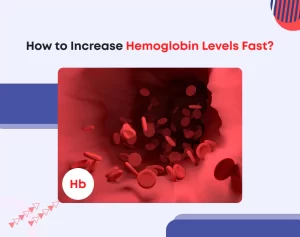
What Does Smoking Cigarettes a Day Do to Your Blood?
Smoking should not be considered a vice. It is a real disease because it is an addiction, both physical and psychological.
The cigarette contains a harmful substance called tar, along with approximately 4800 other harmful substances, as well as nicotine and carbon monoxide. Nicotine is a drug that induces a physical dependence equal to that of heroin, cocaine, or other opiates. Numerous studies have now highlighted and known the areas of the brain on which nicotine has its effect, determining pleasure, increased concentration, well-being, and reduced anxiety. However, attempts to quit smoking can result in withdrawal symptoms such as an overwhelming desire to smoke, insomnia, irritability, anxiety, and headaches. These symptoms are most intense during the initial days (first week) but gradually subside until they disappear completely
According to the World Health Organization, nicotine addiction is defined based on three criteria:
- Failed attempts to quit smoking.
- Difficulty in controlling tobacco use.
- Experience withdrawal symptoms upon discontinuation.
Psychological dependence typically develops after physical dependence, wherein certain situations (such as drinking coffee, consuming alcoholic beverages, or socializing with friends) trigger the individual’s urge to smoke, forming ingrained rituals in their daily life. This creates a challenging cycle that is difficult to break. The cigarette becomes a significant object in an individual’s life, serving as a “psychological crutch” and a natural antidepressant to cope with difficult moments or to enhance the enjoyment of life’s pleasures. Consequently, the negative and toxic aspects of smoking are often overlooked or ignored.
What happens to your blood when you smoke a cigarette daily?
Smoking cigarettes can have various negative effects on your blood. Here are some of the ways smoking impacts your blood:
Reduced oxygen levels: Cigarette smoke contains carbon monoxide, which binds to hemoglobin in your red blood cells and reduces their capacity to carry oxygen. This leads to decreased oxygen levels in your blood, potentially causing fatigue, shortness of breath, and other health issues.
Increased carbon dioxide levels: Smoking affects the gas exchange process in your lungs, resulting in higher levels of carbon dioxide in your bloodstream. Elevated carbon dioxide levels can lead to respiratory problems and contribute to the development of chronic conditions like chronic obstructive pulmonary disease (COPD).
Constricted blood vessels: Smoking causes the blood vessels to narrow and constrict, a condition known as vasoconstriction. This narrowing reduces blood flow to various organs and tissues in your body, including your heart and brain. It can lead to an increased risk of heart disease, stroke, and peripheral vascular disease.
Elevated blood pressure: The chemicals in tobacco smoke can raise your blood pressure by causing the blood vessels to narrow and promoting the release of stress hormones. Over time, high blood pressure increases the risk of heart disease, stroke, and kidney damage.
Increased risk of blood clots: Smoking can make your blood more prone to clotting by affecting platelet function and promoting the formation of blood clots. This raises the risk of conditions like deep vein thrombosis (DVT), pulmonary embolism, and coronary artery disease.
Impaired immune function: Smoking weakens the immune system, making you more susceptible to infections and impairing the body’s ability to heal wounds. It can also contribute to inflammation and damage to blood vessel walls.
It’s important to note that these effects can vary depending on the duration and intensity of smoking, as well as individual susceptibility. Quitting smoking is highly beneficial for your overall health and can lead to significant improvements in your blood composition and cardiovascular well-being.






